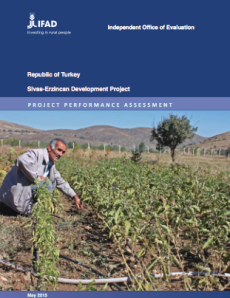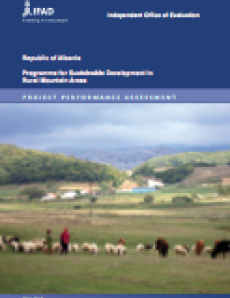
Two new publications from the Independent Evaluation Office of IFAD
The Independent Evaluation Office of IFAD have released two Project Performance Assessments on their Sivas–Erzincan Development Project and their Programme for Sustainable Development in Rural Mountain Areas.
The Sivas-Erzincan Development Project in Turkey, implemented between 2003 and 2011, aimed to increase agricultural productivity and income levels of the rural poor, expand employment opportunities and encourage smallholder initiatives.
The project made an important contribution in terms of supporting the communal infrastructure including new irrigation schemes and improvements to dairy-related activities led to a significant increase in agricultural productivity and income levels for the rural poor in the less developed parts of the project area. The project also financed non-repayable grants which created a secure and steady income from dairy production.
Despite important steps taken and contributions made, the overall achievements fell short of the set objectives. The late and incomplete establishment of properly functioning monitoring and evaluation systems led to severely hindering the analysis of project results. Training of project support staff also needs attention.
The goal of the Programme for Sustainable Development in Rural Mountain Areas of Albania was to increase household incomes through three objectives: additional resource mobilization in and for the mountain areas; accelerated economic growth and poverty reduction; and strengthened abilities of local institutions to support private- and public-sector investment.
The project was able to identify relevant value chains and key constraints to enhancing incomes. Experiences in community empowerment and institutional development were also promising at local level. Some farmers and entrepreneurs successfully used project grants or loans to expand their operations, resulting in higher incomes and the creation of jobs.
However, the project did not meet expectations at the national level. In particular, an effective mountain area development agency has not emerged, nor has a sustainable rural lending institution serving small rural farmers or entrepreneurs. The project design did not adequately take into account critical issues and recommendations raised during a former evaluation by IOE and IFAD design reviews. A lack of an appropriate monitoring and evaluation system and the absence of a midterm review limited corrective measures that could have been introduced.

